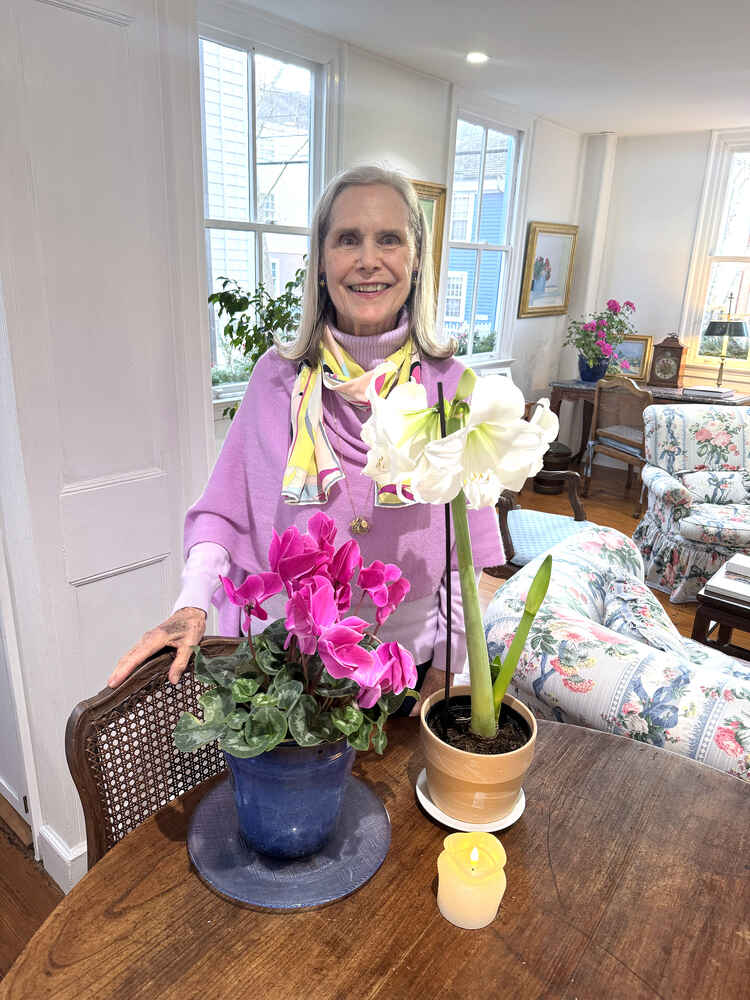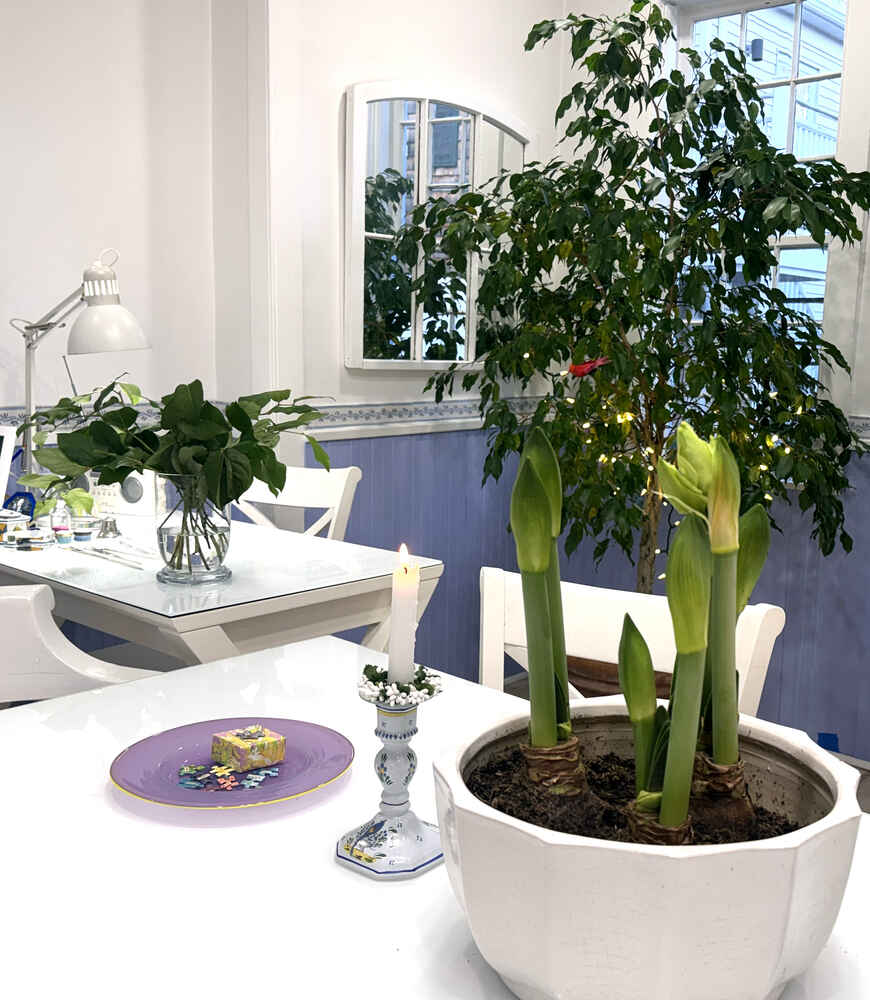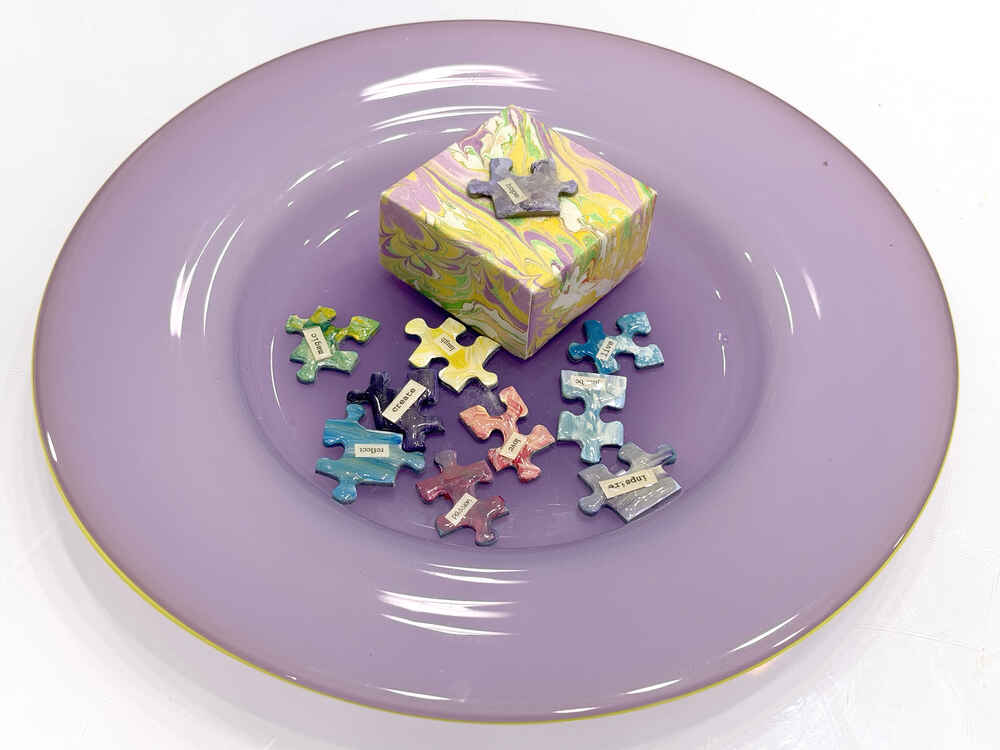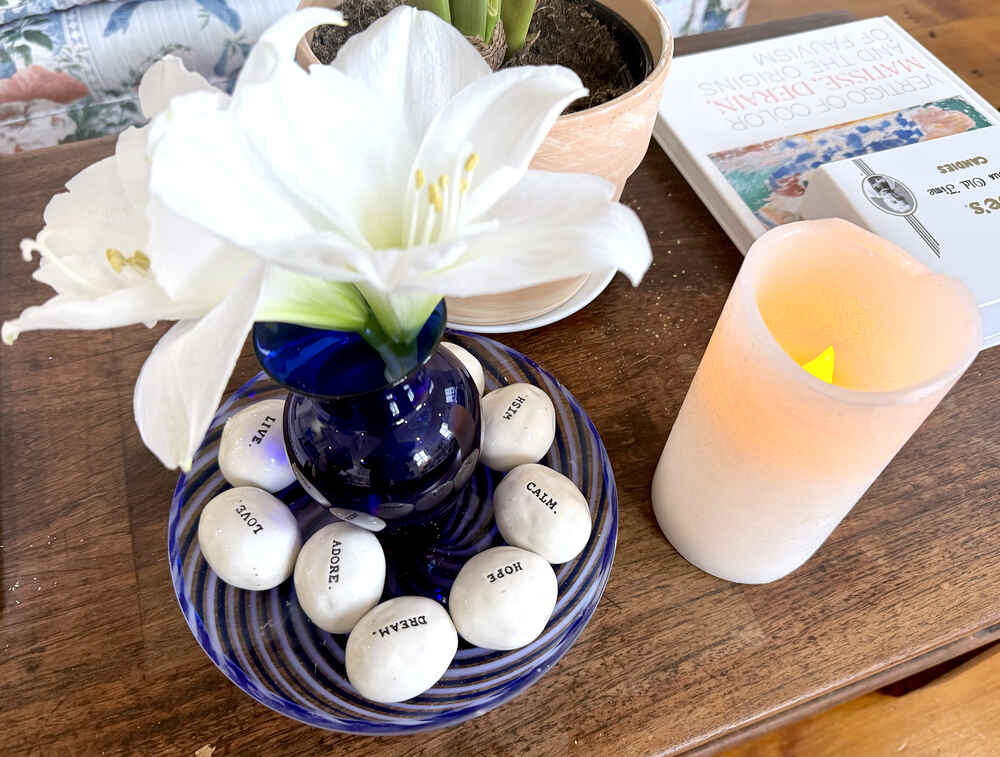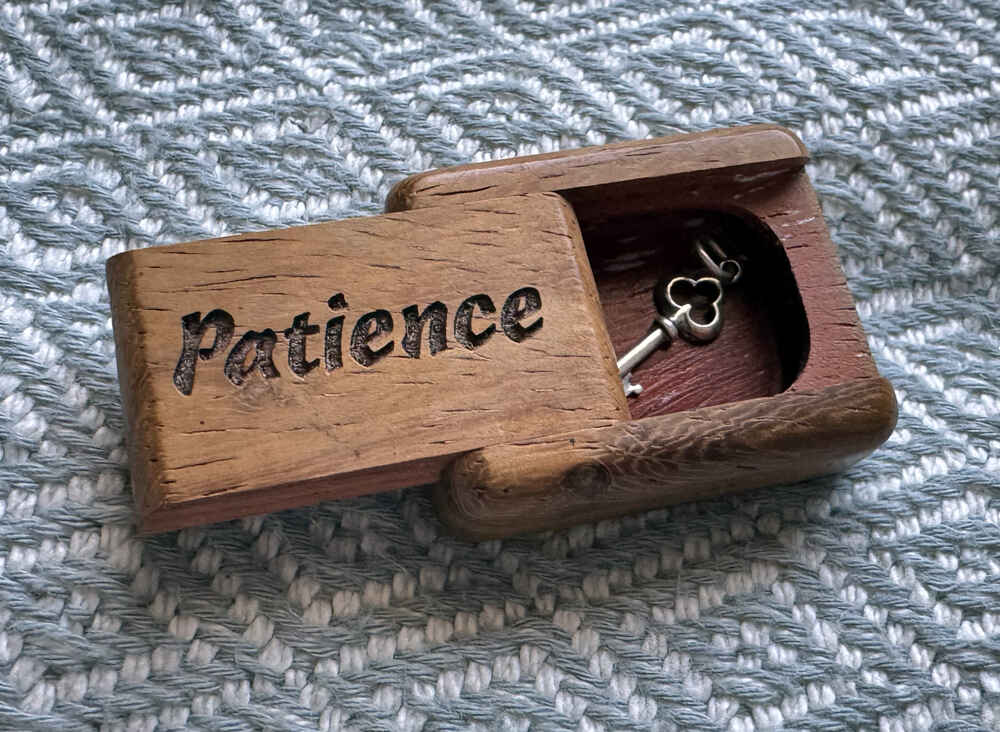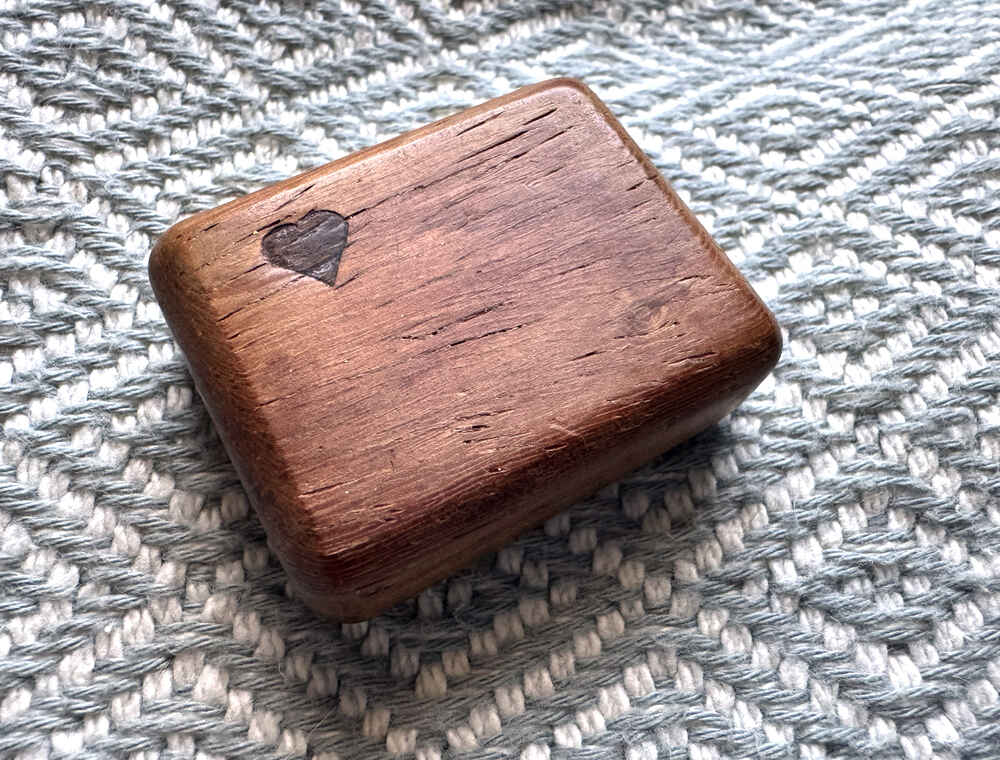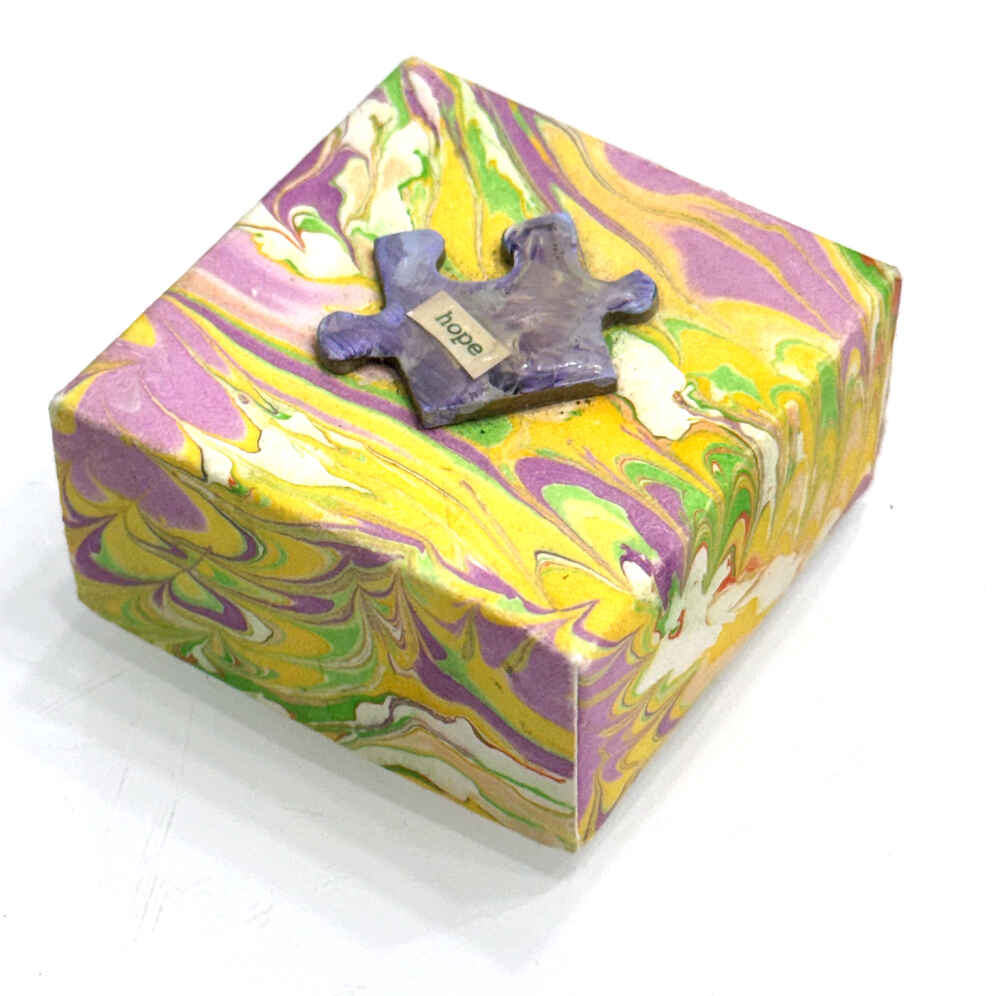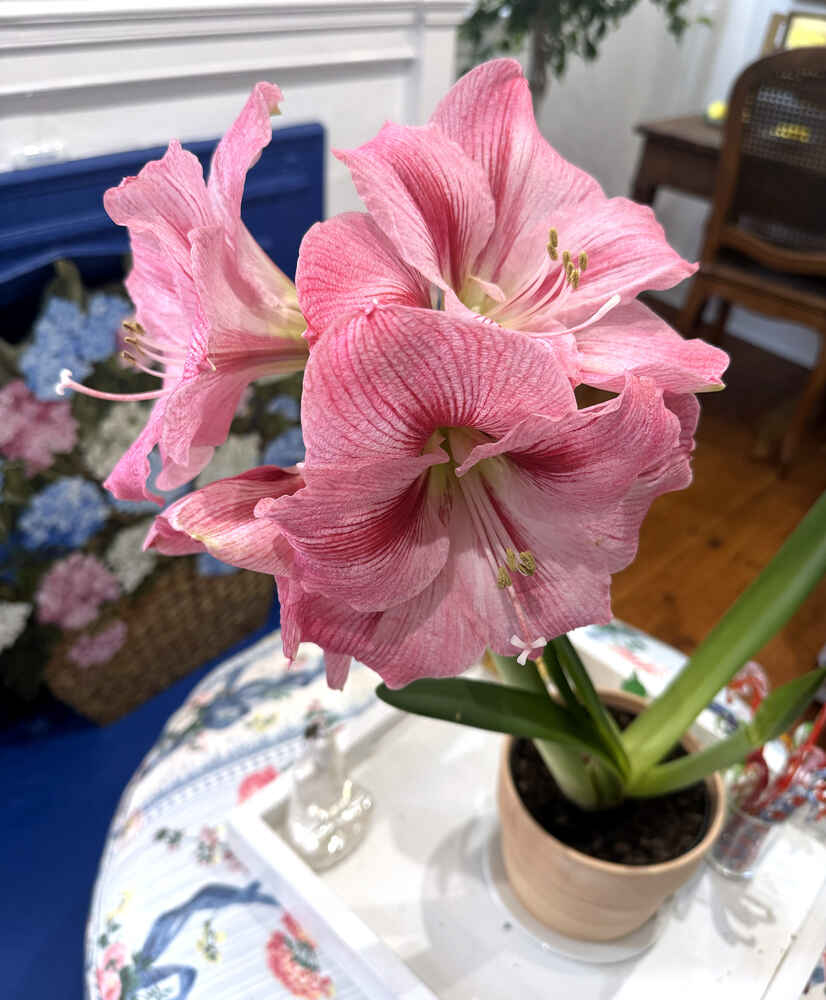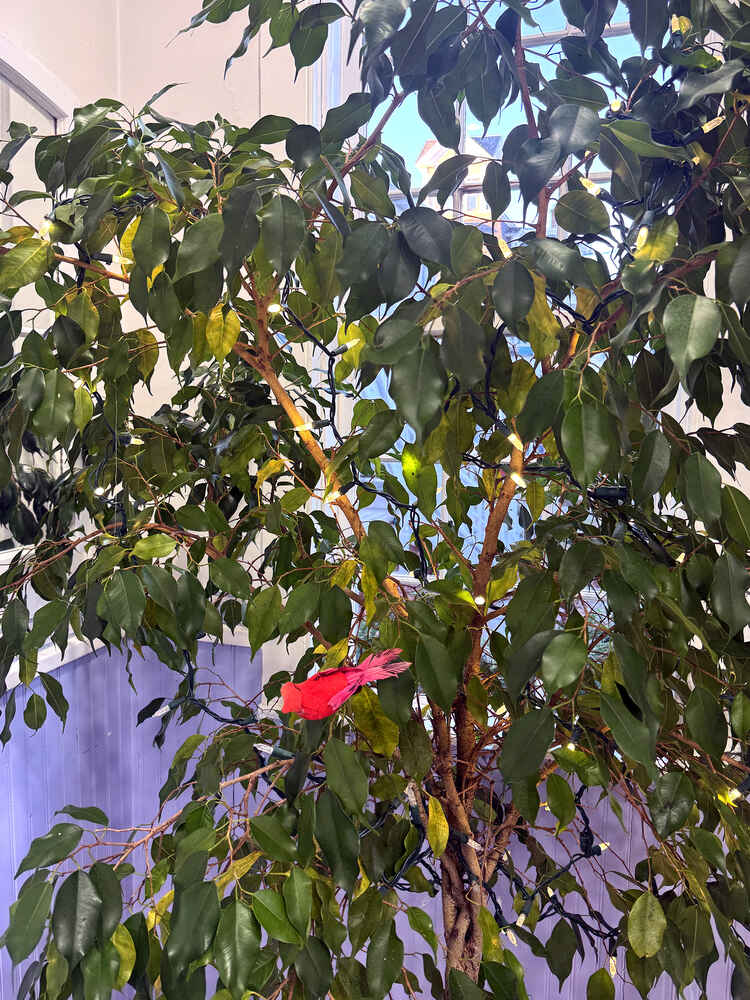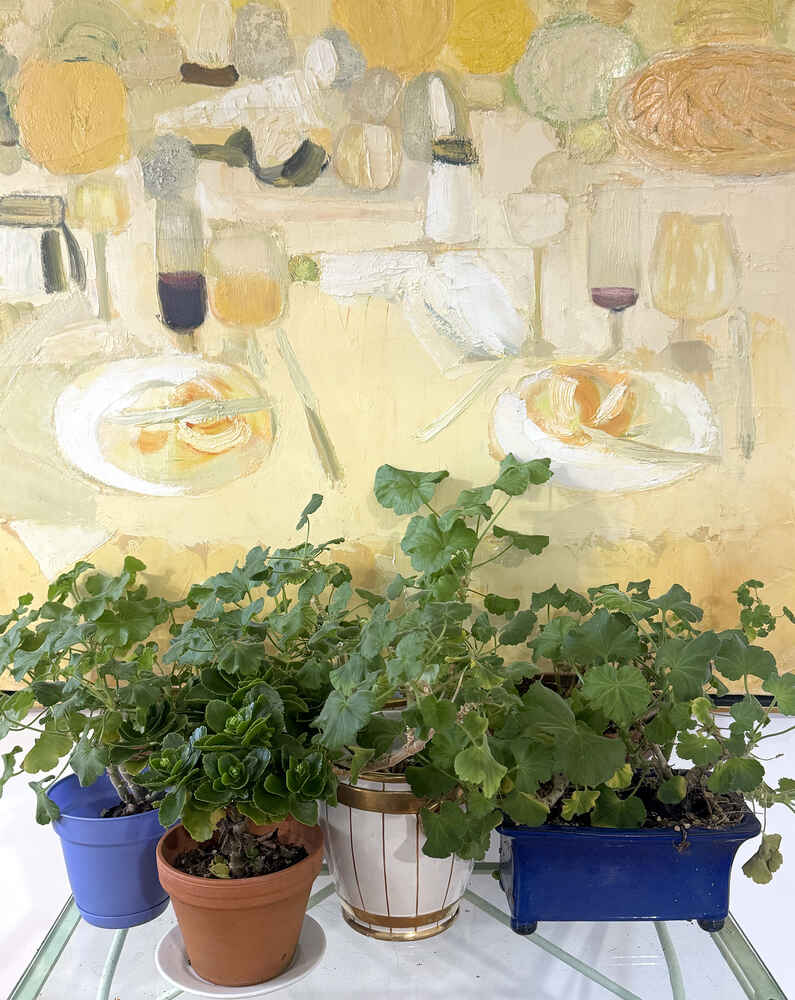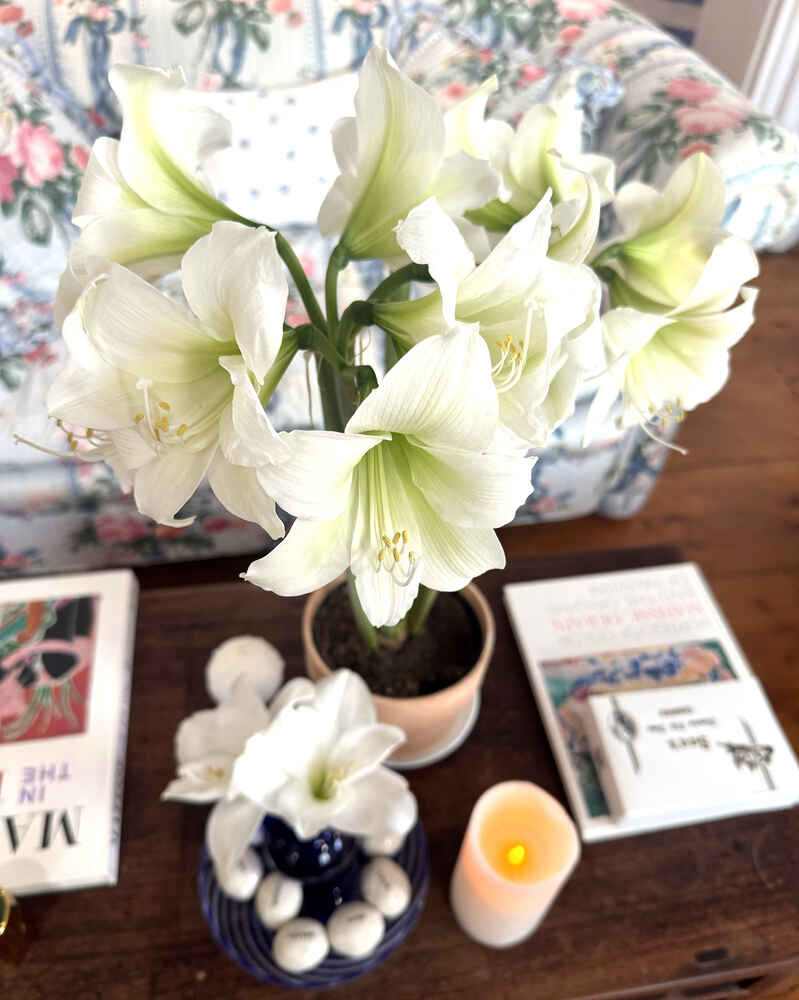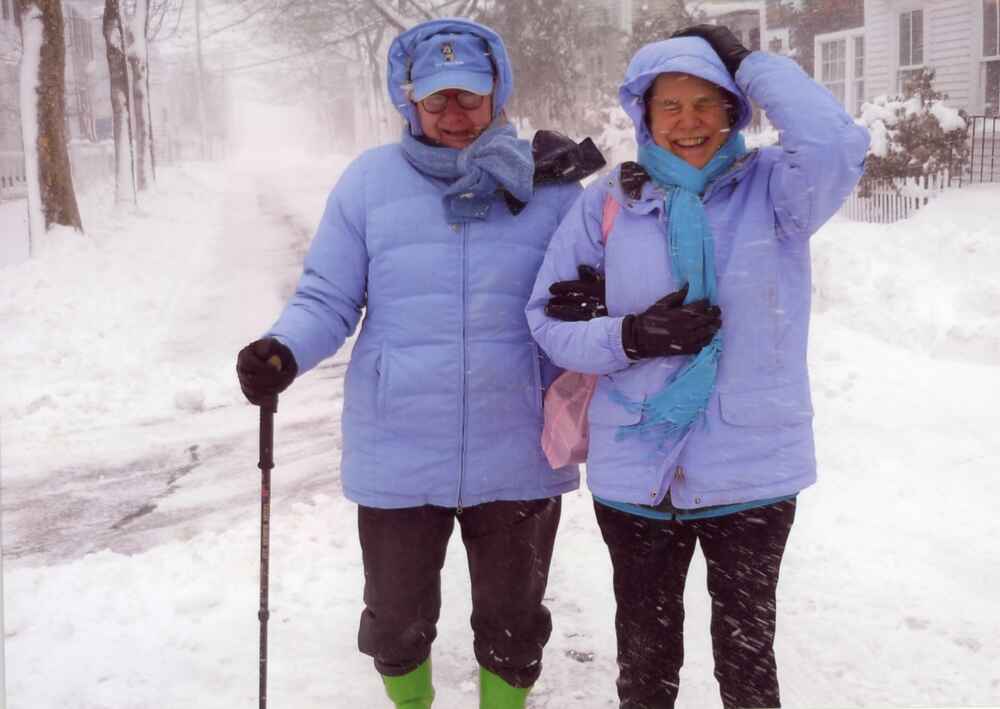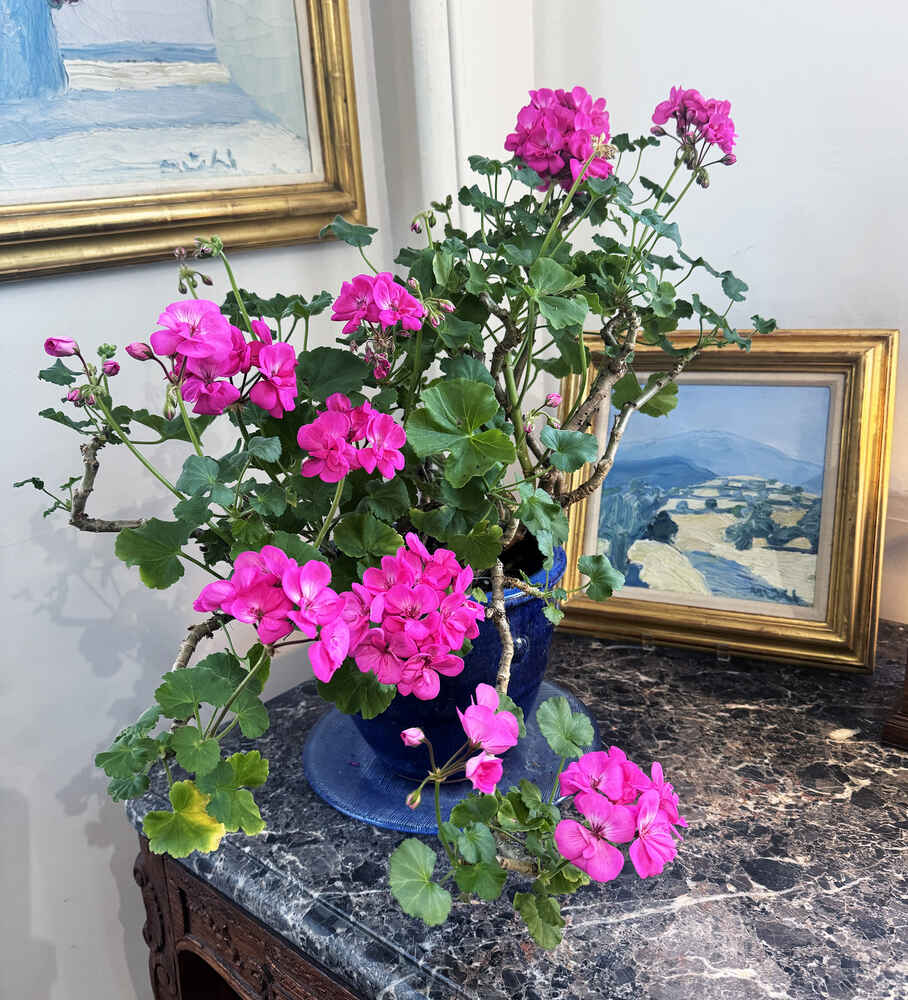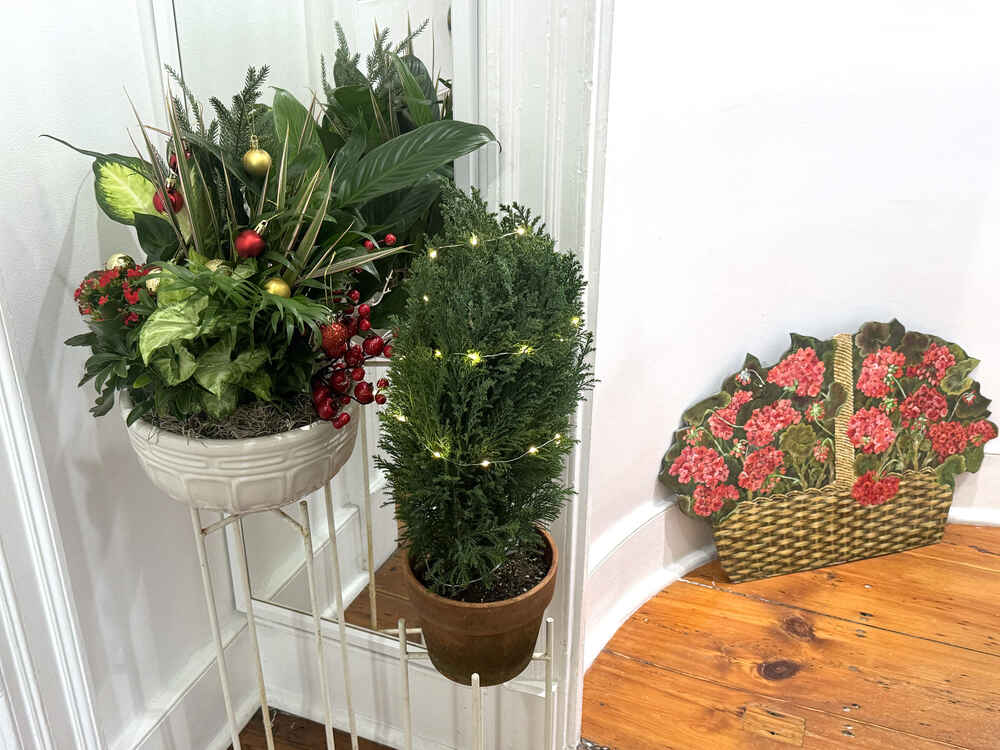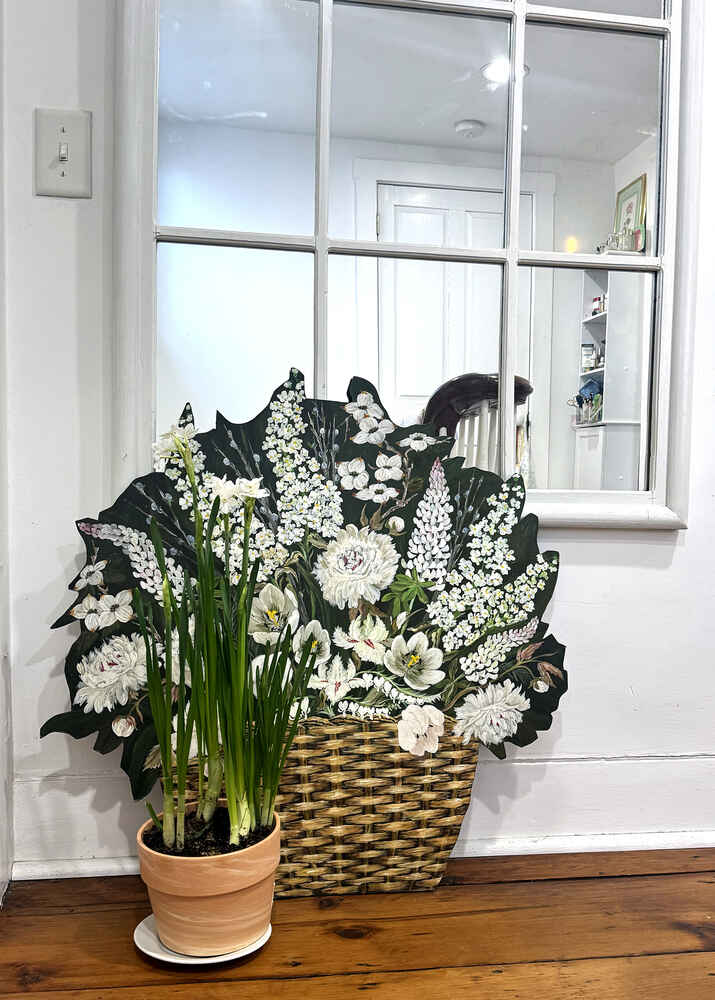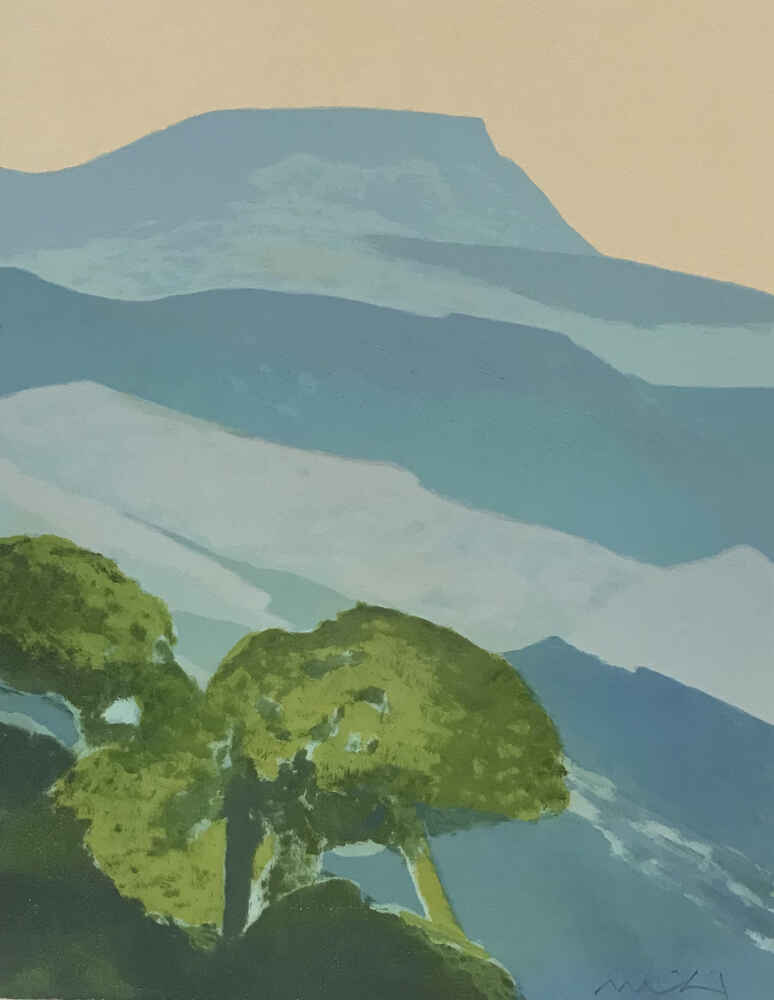AUTHOR | SPEAKER | PHILOSOPHER | DESIGNER
January 2025
Dear Friends,
I love you! Happy New Year!
We’re given a fresh start, a new chapter. We are free to decide how to prevent illness as we achieve and maintain our well-being, learning from all the life chapters leading up to the present. We are free to choose to pursue activities that feed our soul and feel good in the present.
I’m excited to share some of my thoughts as we move forward with a blank slate into the unknown, new future adventure. An artist begins with a blank canvas. We close our eyes to see, to envision. We start to write on an empty sheet of paper, one word at a time.
Lao Tzu’s insight on “empty and be full” is so relevant now. We have the opportunity to wisely choose and act in affirming, sustaining ways that enrich and support our ability to live our best life.
When we say “Happy New Year” to those we communicate with, what is the meaning behind this year-end, year-beginning greeting?
I continue to believe happiness is the aim and purpose of life. We choose happiness as our way of being. The ancient emperor of Rome, Marcus Aurelius, wisely understood: “The happiness of your life depends upon the quality of your thoughts.”
The Greek philosopher Democritus expressed happiness’s essence: “Happiness resides not in possessions and not in gold. The feeling of happiness dwells in the soul.” Democritus was born approximately 10 years after Socrates. If we all want to achieve this state of equanimity, inner harmony and peace, we have to be in intimate touch with our feelings. My happiness teacher, Aristotle, taught us that “You will know the accuracy of your way if it made you happy.”
The female 20th century writers I admire, Daphne du Maurier and Simone du Beauvoir (born one year apart), help to confirm and clarify. “Happiness is not a possession to be prized,” du Maurier believed, “it is a quality of thought, a state of mind.” This truth requires daily mindfulness practice. We remind ourselves that we want everyone to achieve the same in their souls. Simone de Beauvoir adds illumination to our inner reflection: “I wish that every human life might be pure transparent freedom.”
January 2025 is a month that will require concentrating our equilibrium in order to maintain our balance and direct our aim. The Greek Stoic philosopher Epictetus’s wisdom comes to mind: “True instruction is this: —to learn to wish that every thing should come to pass as it does….vice and virtue, and all such opposites, for the harmony of the whole…. My pleasure lies in seeing that myself grow better day by day.”
In order to begin this new year’s adventure in the best possible light, I suggest we look ahead with words that will encourage our progress into greater truth and light. The poet Amanda Gorman assures us, “There is always light. If only we’re brave enough to see it. If only we’re brave enough to be it.”
Word of the Year
The august Oxford English Dictionary comes up with a new word each year. Their word for 2024 is brain rot. Drawing from more than 25 billion words in current usage across the English-speaking world, the word “is to reflect the mood and conversations that have shaped 2024.” The dictionary now defines the term brain rot as “deterioration of a person’s mental or intellectual state, especially viewed as a result of overconsumption of material (now particularly online content) considered to be trivial or unchallenging.”
Apparently, according to a New York Times article, the use of slop also spiked 300% over last year, referring to “art, writing or other content generated using artificial intelligence.”
Let’s fast-forward to our own, more positive words for 2025. As you know from last year, Elissa has selected a word to help set her intentions every January 1. This year, her word is community. When we choose to select a word, it requires us to think of something that will guide our light.
Before I was able to select my new word, I came up with a word bouquet. I began by reviewing some old, familiar, tangible objects that have words that are keys to our well-being. I have some white pottery candles my friend Jimmy gave me that have the printed words Love, Peace, Hope, and Joy.
A friend gave me a small, meaningful box containing 10 puzzle pieces with words. The cover of the box reads, Hope.
Inside:
Laugh
Passion
Inspire
Create
Reflect
Be Just
Life
Love
Magic
Another friend gave me some porcelain eggs with words engraved on them. I gave one to a friend.
Of the nine remaining:
Calm
Wish
Peace
Laugh
Live
Love
Adore
Dream
Hope
My dear friend Kerri gave me a small wooden box with a sliding top with the word Patience carved in the center. On the box’s smooth, polished wooden back, there is a small heart etched in the top left-hand side. When I slide the box open, there is a small key: a symbol of how important patience is when we love one another, as well as a reminder to be patient with ourselves.
As you glance at my word bouquet, let certain ones that resonate with you become part of your motivation and focus as you lean into 2025. Remember my daughter Brooke came up with 10 defining words in a café when she lived in Paris after graduating from college; I wrote about the “10 words” in Feeling at Home. You might find committing to one word a difficult decision, or you may envision one immediately. Some of my words are to encourage me to pay attention to my heart’s desires. These words can benefit our mutual growth and well-being. As we mull over the words, we can use them in our vocabulary, write them in our gratitude journal or in thank-you notes for loved ones. I hope this exercise is fun and instructive. Some of my friends chimed in with their words for the year:
Alice: Embrace
“Embrace me, my sweet embraceable you.” —Ira Gershwin’s song “Embraceable You” from 1930
Sheila: Kindness
His Holiness the Dalai Lama said, “Kindness is my religion.”
Anne: Dawn
Ponder empowering words in the dawn of 2025.
Amy: Forward
Onward and upward!
Mike: Moderation
“Nothing in excess” —the inscription in the Temple of Apollo at Delphi
Lorraine: Adventure
Chris: Better
Deb: Travel
Kathleen: Kind
Susan: Health
George: Maintain
Jillian: Manifestation
Norma: Love
My oldest participant in the word of the year.
Katherine: Vitality
Hope is the thing with feathers
That perches in the soul,
And sings the tune without the words,
And never stops at all,
And sweetest in the gale is heard;
And sore must be the storm
That could abash the little bird
That kept so many warm.
I've heard it in the chillest land,
And on the strangest sea;
Yet, never, in extremity,
It asked a crumb of me.
—Emily Dickinson
My literary agent Carl Brandt always reminded me that words are only powerful when they express our thinking and feeling. When we’re able to incorporate carefully selected words into our day-to-day lives that express our character, values and principles, words become alive. We’re able to express our spirit-energy thorough words that take flight and engage our soul.
Accept | Courageous | Flexible | Jubilant | Poetry | Stimulated |
Adapt | Create | Flourishing | Karma | Positive | Stoic |
Aesthetics | Cultivate | Flow | Kindness | Presence | Strength |
Amazing | Culture | Freedom | Learning | Principles | Study |
Anchored | Curious | Friendship | Let go | Productive | Sublime |
Antidote | Daring | Fulfillment | Light | Prosperity | Tenderness |
Appropriate | Deepen | Fun | Loyal | Purity | Thankful |
Art | Delight | Generosity | Luck | Question | Thoughtful |
Attentive | Deserving | Giving | Magical | Read | Transcendent |
Awareness | Dignity | Goodness | Magnanimous | Realistic | Transcendental |
Awe | Discernment | Grace | Meditate | Reasonable | Transformation |
Balanced | Discover | Gracious | Memories | Recharge | Transition |
Beauty | Empathetic | Gratitude | Mindful | Reliable | Transparency |
Believe | Enchantment | Grounded | Miraculous | Resilience | Treasuring |
Belong | Endearment | Growth | Moderation | Resourceful | True |
Blessings | Endurance | Gusto | Modest | Respect | Trust |
Blossom | Energetic | Happiness | Motivated | Retreat | Trustworthy |
Brave | Enlightenment | Heal | Music | Rituals | Truth |
Caring | Enthusiastic | Heart | Mystery | Sacred | Understanding |
Celebrate | Equanimity | Helpful | Mystical | Safety | Unfold |
Character | Evolve | Heroes | Nature | Sanctuary | Unity |
Civility | Exalt | Honesty | Newness | Sensitivity | Useful |
Clarity | Excellence | Honor | Nurture | Serendipity | Vibrant |
Comfort | Exhilaration | Humanity | Observe | Serenity | Vigor |
Communicate | Expansive | Humble | Open | Simplicity | Virtue |
Compassionate | Expectations | Improve | Optimism | Sincerity | Vitality |
Complete | Exuberance | Insights | Patience | Soothing | Vulnerable |
Concentration | Fairness | Inspired | Perspective | Soulful | Welcoming |
Conscientious | Faith | Integration | Philosophical | Spark | Whole |
Contemplation | Faithful | Intention | Playful | Spirited | Wisdom |
| Continuity | Feeling | Intimacy | Pleasant | Spontaneous | Wonder |
Horace, the wise Roman poet, taught philosophers for thousands of years to “Seize the day, put no trust in the future. Carpe diem.”
Tragic Optimism
His Holiness the Dalai Lama believes we “choose to be optimistic.”
Viktor Frankl, a psychologist and Holocaust survivor, coined the words tragic optimism. This term evolved from his insights that all human beings face pain (because of our bodies); guilt (we freely choose and often make mistakes); and loss (we’re all going to die). Life is impermanent.
Brad Stulberg wrote in The New York Times about how Hurricane Helene “wreaked havoc” on his community in western North Carolina. Lives were lost, schools closed. There was no running water or safe drinking water. But Stulberg understands that eventually, “we’ve got to rise up and move forward — if for no other reason than the alternative is worse.” We have to not only acknowledge hardships and pain but also expect it realistically as inevitable.
Tragic optimism, he wrote, “holds space for the full range of human experience and emotion, giving us permission to feel happiness and sadness, hope and fear, loss and possibility — sometimes in the same day, and even in the same hour.”
Maintaining hope and having a positive outlook is a skill we need to practice mindfully. We will always have some say in the way we handle the tough times. The more emotionally intelligent and flexible we are, the more resilient we will become and the faster we’ll recover from our misfortune.
“Wise hope and wise action,” Stulberg writes, “ask us to accept a situation and see it clearly for what it is, and then muster the strength, courage and resolve to focus on what we can control.” We’re free to maintain an optimistic, life-affirming attitude. We can adopt habits and skills that will boost our agency by being realistic and kind to ourselves.
When we make a commitment to being productive in the wise actions that are in our control, we’ll be able to maintain a positive perspective no matter what is thrown our way. When we look up, knowing that we are doing the best we can at the time, we will be at peace with ourselves. We are part of a community, and collectively our efforts will make a difference.
Because we don’t know when pain, guilt and loss can throw us for a loop, it is wise to have antidotes to, for or against whatever happens. We can prepare ourselves with affirmations. Tragic optimism supports our desire to improve whatever is in our power to control. By our nature, we will have bad thoughts about so much of life that we can’t control. By making the effort to counter any nonproductive thoughts with helpful ones, in time this habit will become second nature. Whenever we’re worried, we lose our perspective. Something as simple as the romantic 19th century poet Robert Browning’s advice will be useful: “Look not down but up!” Or sing the turn from the 1930s song “On the Sunny Side of the Street” by Dorothy Fields.
A Few More Affirming, Wise Thoughts
- The American Heritage Dictionary’s definition of optimism is “a tendency to expect the best possible outcome or dwell on the most hopeful aspects of a situation.” Philosophically it is “the doctrine that this world is the best of all possible worlds.”
- We have to fill our glass more than half full of hope and optimism so we never risk the chance of running dry.
- Optimism is feeling good about the future (what’s in our control).
- Optimists remain hopeful, seeing silver linings, seeing opportunities that are often disguised. Find ways to help make things better, somehow, any way possible. We’re free to choose how we accept reality, adapt and act accordingly.
- “Take one thing with another and the world is a pretty good sort of a world, and it is our duty to make the best of it, and be thankful.” —Benjamin Franklin
- “You play with the cards you’re dealt… Whatever that means.” —Peanuts, Charles M. Schulz
- “My knowledge is pessimistic, but my willing and hoping are optimistic.” —Albert Schweitzer
- “I’m an optimist about possibilities.” —Lewis Mumford
- “Something will turn up.” —Benjamin Disraeli
- “Hope is a waking dream.” —Aristotle
- “All events are linked together in the best of all possible worlds.…” —Voltaire
- “While there’s life, there’s hope.” —Theocritus
Connections
Charles M. Blow wrote a column for the Opinion section of The New York Times called “New Friends After 50? Yes Please!” My word for the new year is connection. Now that I’m well on my way as an established member of the 80s club, I particularly enjoyed his insights about his mother’s “relaxing relationship to friendship” in her 80s. Charles perceptively understands that we are “the survivors, those whom life has chosen and wisdom rewarded.” In our club, life has chosen us. Wisdom is rewarding us. We “know what matters in the end: human connection.”
He cites a 2020 study that “having friends in old age is linked to higher levels of happiness and life satisfaction.” Being around friends (for those of us who are 65 and older) regularly is more pleasant and is “associated with fewer discussions about stressful experiences,” according to the study, than when we’re we’re with romantic partners or family members.
The Greeks have a word for the kind of friendships we have when we’re older. Philia is a tendency toward loving another human being, making a genuine connection. This certain kind of love is platonic, transcending physical desire. Friendship in a spiritual realm is most pleasant indeed. Yes, please!
The author of The New York Times newsletter on the way we live now, Jessica Grose, wrote about how “Human Interaction Is Now a Luxury Good.” Human connections, when they’re caring and loving, increase our sense of pleasure, allowing us to live a richer, fuller life. We’re deeply rewarded when we value our face-to-face encounters.
Grose wrote about sociologist Allison Pugh, who spent a day shadowing an apprentice hospital chaplain who provided emotional understanding and support. Pugh believes “care” work, “connective labor,” should not be replaced with technology. Apparently, the chaplain’s energy was drained because she had to chart her activity in several different systems on her computer.
How can you standardize the process of providing spiritual comfort to someone who has just lost a loved one? Technology has its place; however, I believe it often attempts to replace human beings’ interacting. I spent a day at Johns Hopkins visiting patients when I was there for a happiness retreat. I learned from one patient that her only request was that she have music in her room. The woman who organized my event asked her what some of her favorite music was, and magically she was able to play some on her phone. The extremely ill patient’s glee was palpable. Technology has its place.
During the pandemic, our mailman Kim was our lifeline. Because we regularly had an exchange, he missed us after he retired three years ago. Blessedly, several friends and I see Kim regularly. I look forward to going to the post office to see Chris. We visit while he meticulously does his work.
Are you concerned that so many of the pleasant interactions we used to have on the telephone or in person are now transacted automatically, leading us into less and less human connection? When we are too time-pressured all the time, we have to ask ourselves, what’s the rush? Who is benefiting from this loss of one-on-one interaction?
Efficiency and expediency have their time and place. However, always being in a breathless rush robs us of the precious mindful, spontaneous moments that can be a lifeline for us all. We are not built to act like machines who can do things in record speed, nor should we feel comfortable accepting a less human future.
We nurture our soul by our spontaneity as we meet and greet and talk with friends, hear their voice and open our hearts. When we care, it’s felt. Machines can’t show up and hug.
Happy New Year! I’m looking forward to an exciting year full of human connections where our friendships continue to flourish.
Great love to you.
Love & Live Happy,

“All shall be well, and all shall be well, and all manner of things shall be well.”
—Dame Julian of Norwich (born in 1342; the first female prose writer to be published in English), Revelations of Divine Love
This month, I'm letting go of a lithograph by Roger Mühl if anyone is interested in adding it to their art collection. Please contact Pauline at Artioli Findlay (pf@artiolifindlay.com) for more information.
Roger Mühl (French, 1929 - 2008)
"Provence II, Au - delà du vallon se dressait"
Limited edition French lithograph
Image and sheet size: 16 3/8 x 12 1/4 in
Executed / printed 1986
Edition # VII/XX
French landscape of umbrella trees in the foreground with valleys and mountains in the distance.

